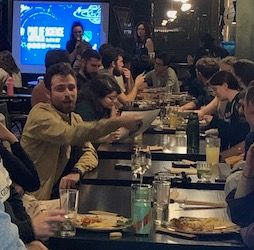When hosting a public science event, you don’t need to get out the silverware, but there are some things hosts can do to make their guests comfortable.
It’s May and its cold in Melbourne, Australia. Guests have paid their $8 entry fee and ordered their pub meal and beers. They’re grouped around tables, waiting to get their Pint of Science. A jolly MC welcomes all and outlines the format of this 2-hour event - a night of science facts and fun with three early career scientists.
At the first venue, the Retreat Hotel, Abbotsford (inner city), about 40 people (mostly 20-35, some over 55) were seated around tables in an upstairs room.
Next night, at the second event at the Notting Hill Hotel (suburbs), this larger venue seated over 60 people (similar demographic) in a long room with guest speakers up one end.
These people could be at home on their couches, bombarded by the latest movie thrills and game effects on large, startling screens. We’re competing for their attention with our offer of close contact with live scientists. And the line-up is impressive - they’re all obviously intelligent, smart, curious, open-minded and focussed on their research field with fascinating personal stories to tell. This is what’s best about this kind of science communication - a chance to see how genuine and motivated researchers can be, how we might trust them and be guided by their expertise.
As the speakers begin, I'm reminded of Edward Tufte, the great advocate and critic of information visualisation. From 1993-2014 Tufte ran his popular one day workshop - Presenting Data and Information - to over 250,000 attendees. Well-known for his disdain for powerpoint, in his 2006 book Beautiful Evidence (p158) he wrote:
Powerpoint is presenter-oriented, not content oriented, not audience oriented.
Amazon CEO Jeff Bezos' is well known for banning powerpoints in staff meetings. Instead, meetings started with 30 minutes of silent reading of a 6 page narrative memo with the belief that when people are given the full story, not just dot points, they retain more information, they stay engaged and alert to problems they might want to explore in the meeting.
Is there something here we can learn from Tufte and Bezos?
We’re introduced to the speakers who share personal stories about what got them into research and what else they do when not doing research. They are all well-rounded, talented and lively. What’s not to like? But yet something is annoying me. Is it background noise? Pubs are challenging venues. There is some competing noise from other rooms, but it’s not bad. Meals are being served during the presentations. People are eating. But this crowd is tuned in. Lighting perhaps? Not really. It’s a pub, not a theatre. It’s not great, but it suits the atmosphere.
I suspect both audiences to be mostly friends or colleagues of the presenters, or like-minded. They’re already on side and probably not bothered by illegible slides or distractions because they live in that messy academic world. Yet when chatting at my table with two medical research post docs, they’d struggled to make sense of one talk outside their field. So how would someone less ‘scientific’ have found it?
In both venues, I was far enough away and the screens were too small, to read detailed slides (I'm not looking to critique the data on any slides here, just hoping to take them in as part of the unfolding story). This interfered with my engagement as the speakers' faces were already shadowed by the bright screen and they disappeared more each time they looked away from us to refer to the dazzling screen. And if engaging with those researchers stimulates us to want to learn more, where will we do that? Yes, you’ve given me a link to your lab at the last slide, yes it's exciting that you are welcoming people to your citizen science project, but it’s too dark for me to see and I can’t photograph details with my phone from this far back.
Pint of Science sets several goals. It gets interpreted slightly differently across the 26 countries who now participate. In Australia, their website gives two main ones:
- To provide a vehicle through which to get researchers out talking to the public.
- To knock down stereotypes, build science appreciation and highlight some amazing local science.
Obviously chosen for their diversity, subject and skills, these researchers are all excellent role models. And the MC's did a great job with audience quizzes etc. I'd just like to see our hosts focus more on their guests. I have some suggestions.
Let’s start by guiding presenters away from their usual slide presentations. If they must use them, and the venue doesn’t offer a large screen for all to be able to see details, keep them to simple images which convey the excitement of the subject such as a marine researcher underwater with fish. Use other aids to keep the focus on the audience such as an iPad attached to the stalk of the microphone, where a quick glance and a scroll offers a prompt, but doesn't disconnect from the audience too much.
Help the story have a longer life after the event and cement the learning by giving people something on tables to look at while they wait for things to start, and to take home. Get the presenters to produce a handout (yes, recycled paper etc or a qr code on the table which links to all this detail). Include:
- A ‘knowledge map’ which locates their research across the disciplines. Some of the most exciting science today is being done in interdisciplinary areas such as computational biology - biology is becoming a data science - and this has only recently been included in the secondary school curriculum. Audiences need to orient the research in a familiar framework.
- Key talking points as an aid to memory - covering why it’s interesting and why it should be for the audience, what is being studied, what you hope to find and what might be done with that knowledge to contribute to our life and society. Amazon's 6 page memo may not be what's needed. I’m a big fan of Visual Abstracts (see Abraham Ibrahim’s work) for completed research outcomes. The abstract image can be used to introduce a more formal academic talk, to add to a tweet, for submission to journals, and as a one slide summary for this kind of talk.
- A link (or two) for more information - one might be the researcher's lab, but another might be a wikipedia entry.
Science has a long, solid history and deserves to have some permanence - unlike the craft beers your patrons are drinking. Let’s exhibit that.
Pint of Science has been running in Australia since 2014 and in 2023 it ran in 17 cities across the country. Typically, it runs on loads of volunteer enthusiasm and energy. Let's hope future sponsors give the hardworking team more resources to support these talented teams because they have a great offering.
For me, while the science was exciting, my heart sang when I saw a young couple in front of me on a date - that's success in my book - going to a science event can be just another social activity like going to the movies, theatre or galleries.
Seek out these terrific researchers for future science engagement work:
Love and Money in the 21st century at the Retreat Hotel, Abbotsford featured:
Yulia Mitina on Mending Broken Hearts: The Science of Heart Regeneration
Zhonghua Ma on Quantum Coin
Jarrod McKenna on Fantastic Phalluses and where to find them.
Some 'pody once told me, the food was going to whole me, I ain't the sharpest tooth in the pred at the Notting Hill Hotel, Notting Hill featured:
Alyssa Fjeld on Crabs to the Cambrian: A Journey Through Bugs and Body Plans
Barbara Cardoso on Ultra-Processed Foods and Cognition: What's the Evidence
Ben Franciscelli on The Rise and Fall of the Mega-toothed Sharks.


